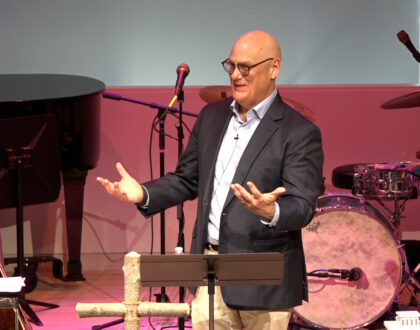Falwell, Liberty, & Evangelicalism’s Conundrum

On August 7, the executive committee of Liberty University’s board announced that the school’s President, Jerry Falwell Jr., would be placed on “indefinite leave” after posting a picture on Instagram from his yacht, pants unzipped, drink in hand, with his arm around a young pregnant woman who was not his wife.
This was not the first controversial act of Falwell. Back in 2015 after the San Bernardino shootings, he urged Liberty students to get carry permits so they could “end those Muslims before they walk in.” Back in May, he wore a face mask that depicted KKK members in blackface, attempting to mock the Governor of Virginia. But the incident on the yacht was the tipping point for many of Liberty’s board members and alumni. They decided enough was enough.
Falwell was appointed President of Liberty back in 2007 after his father, Jerry Falwell Sr., suddenly died of a heart attack. Falwell Sr. was a very influential evangelical pastor who founded Liberty in 1971 and later the Moral Majority in 1979. We should note that under the younger Falwell’s leadership, the school has continued to grow and expand with multiple construction projects and significant endowment growth. Liberty is the nation’s largest evangelical school with almost 80,000 students both on campus and virtual. For years, it has served as the epicenter where conservative politics meet evangelicalism.
Here’s the problem. The school has a very strict code of student conduct but its own president has not been following it. He was asking students to live in a manner that he himself did not.
Let me be very clear – I get absolutely no pleasure in seeing leaders fall. In fact, I think there are too many people in our culture who do which has always been disappointing. Leadership is hard, especially in this current era. But Falwell Jr.’s pattern of behavior is a microcosm of one of the greatest challenges for Christianity in today’s world: a “do as I say, not as I do” mentality.
When surveys are done among younger generations and non-Christians asking what they think about the faith and the church, “hypocritical” is often one of the first words mentioned. Too many Christians do not even attempt to live up to what they say they believe.
Most Christian traditions adhere to some doctrine of “sin,” that human beings are sinful by nature and that is what separates us from God. We are imperfect, broken beings with flaws. That is why we need Christ’s grace and redemption.
Paul puts it this way in Romans 7, “I do not understand my own actions, for I do not do what I want but I do the very thing that I hate.” However, the great German theologian Dietrich Bonhoeffer once warned of what he called “cheap grace,” the idea that we can do whatever we want because we are forgiven.
Liberty is a strong school and has many wonderful Christian faculty, students, and alumni. It is an example of a thriving university that is unashamed of its Christian focus. But they now have a difficult situation on their hands. How this is handled is being watched by many.
Christians always do well to acknowledge their shortcomings and character flaws. This is how character and humility are developed. However, asking other people to live by a code of conduct that we ourselves are not willing to embrace will seem insincere and always leads to problems.
Recommended Posts

Loving God, Loving Nashville
April 24, 2024

Authenticity in a Social Media World
April 16, 2024

“Leveraging Our Love” – Jay Hutchens – April 14, 2024
April 14, 2024

